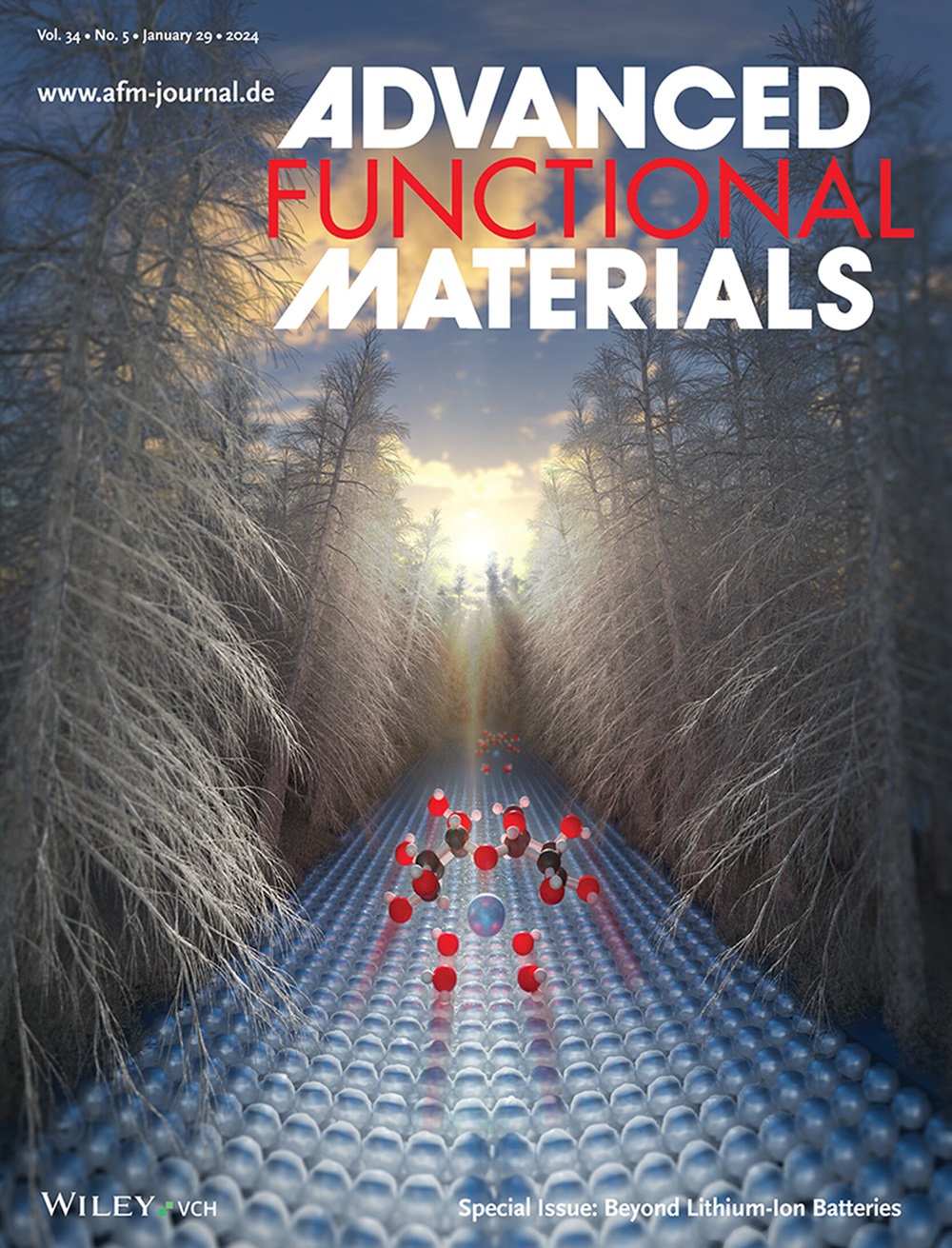合理设计用于电驱动固态储氢的碳纳米材料
IF 19
1区 材料科学
Q1 CHEMISTRY, MULTIDISCIPLINARY
引用次数: 0
摘要
非解离化学吸附法在固态储氢方面超越了传统方法,实现了高储氢容量和快速吸收率。然而,目前的方法往往需要低温和高压,缺乏理论框架阻碍了新材料的合理设计。本文介绍了环境条件下用于储氢的电驱动碳纳米材料,并建立了其制造的一般设计原则。提出了一种新的描述符,将掺杂结构与储氢能力联系起来。在这些原理的指导下,设计了一系列杂原子掺杂碳负载Sc单原子材料并进行了实验验证。这种合理的设计方法已被进一步扩展,以确定最佳的双掺杂碳支撑Sc单原子材料,用于电驱动氢固态存储,超越当前最先进的碳基氢存储材料的性能。本文章由计算机程序翻译,如有差异,请以英文原文为准。
Rationally Designed Carbon Nanomaterials for Electrically Driven Solid‐State Hydrogen Storage
Non‐dissociative chemisorption for solid‐state hydrogen storage is shown to surpass traditional methods, achieving both high hydrogen capacity and rapid uptake rate. However, current approaches often require low temperatures and high pressures, and a lack of theoretical frameworks has hindered the rational design of new materials. Herein, electrically driven carbon nanomaterials for hydrogen storage under ambient conditions are introduced, and a general design principle for their creation is established. A novel descriptor is developed to link doping structures with hydrogen storage capabilities. Guided by these principles, a series of heteroatom‐doped carbon‐supported Sc single‐atom materials has been designed and experimentally validated. This rational design approach has further been extended to identify the optimal dual‐doped carbon‐supported Sc single‐atom materials for electrically driven hydrogen solid‐state storage, surpassing the performance of current state‐of‐the‐art carbon‐based hydrogen storage materials.
求助全文
通过发布文献求助,成功后即可免费获取论文全文。
去求助
来源期刊

Advanced Functional Materials
工程技术-材料科学:综合
CiteScore
29.50
自引率
4.20%
发文量
2086
审稿时长
2.1 months
期刊介绍:
Firmly established as a top-tier materials science journal, Advanced Functional Materials reports breakthrough research in all aspects of materials science, including nanotechnology, chemistry, physics, and biology every week.
Advanced Functional Materials is known for its rapid and fair peer review, quality content, and high impact, making it the first choice of the international materials science community.
 求助内容:
求助内容: 应助结果提醒方式:
应助结果提醒方式:


